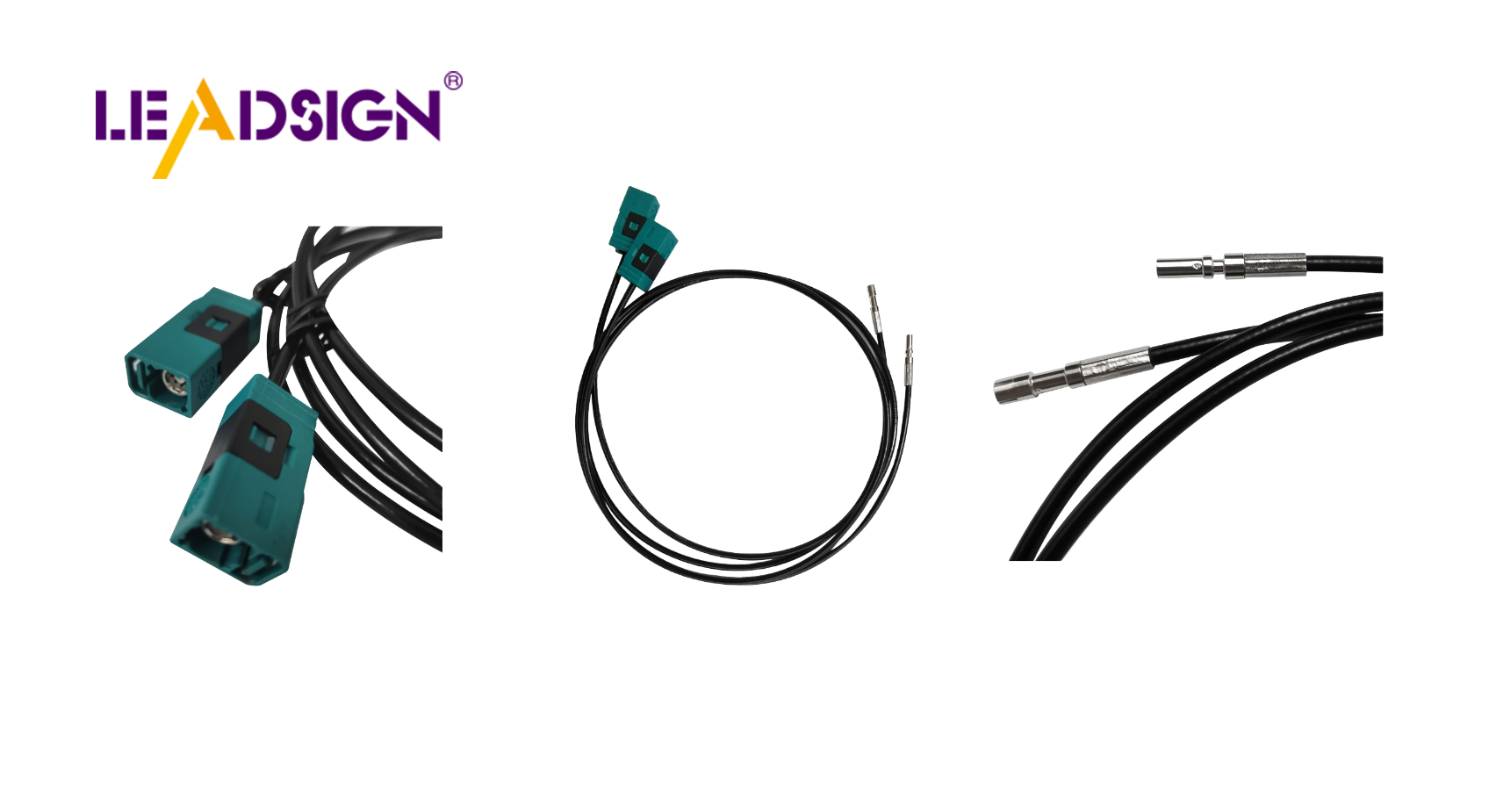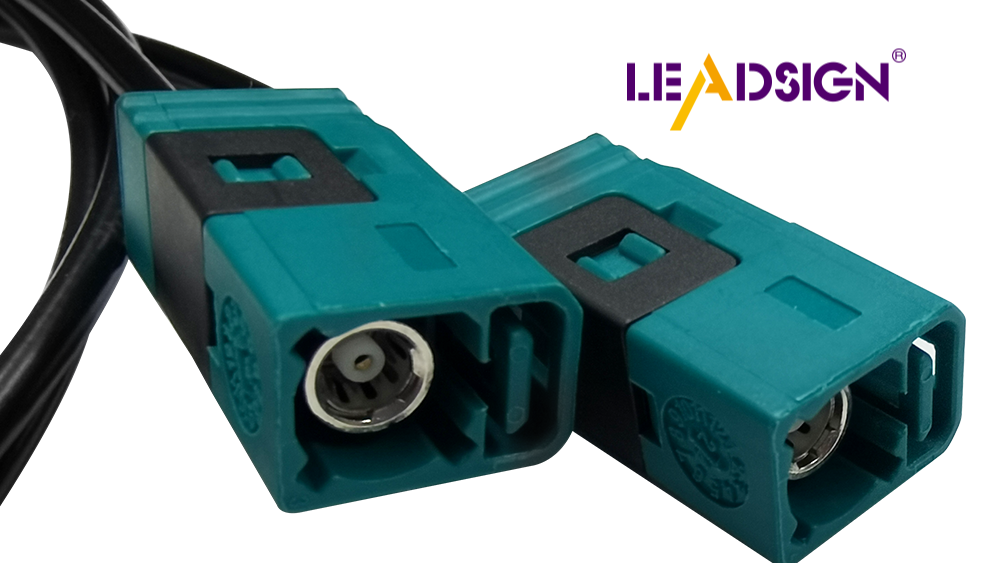Automotive Electrical Connectors Types Explained Simply

Automotive electrical connectors are crucial in modern vehicles, facilitating the transmission of power and signals to various components. These connectors must endure harsh conditions such as vibrations and temperature fluctuations. Manufacturers design them with robust locking mechanisms to ensure they remain secure, maintaining the vehicle's performance and safety. Different automotive electrical connectors types cater to specific requirements, providing reliable and efficient connections. They play a vital role in supporting the vehicle's electrical system, ensuring that components like sensors and lighting systems function optimally.
Types of Automotive Electrical Connectors

Automotive connectors are important for a car's electrical system. Each type has a special job, ensuring good connections for different uses.
Pin Connectors
Uses and Advantages
Pin connectors are very common in cars. They are simple and reliable, making them great for many uses. These have pins that fit into sockets, creating a strong link. They are easy to put together and take apart, which helps with fixing things. Pin connectors also carry electricity well, which is needed for signals and power.
Common Applications
Pin connectors are used in engines, sensors, and lights. They work well because they are dependable and easy to use. In engines, they connect sensors to the control unit for data sharing. In lights, pin connectors link power to lights for steady brightness.
Cylindrical Connectors
Uses and Advantages
Cylindrical connectors are another key type in cars. They handle tough conditions like shaking well. Their round shape gives them strength. Many have locks to stop accidental unplugging, keeping connections stable even when it's rough.
Common Applications
Cylindrical connectors are used where strong links are needed, like near the engine or under the car. They're perfect for fuel injectors, ignition coils, and sensors because they last long and resist harsh environments.
Rectangular Connectors
Uses and Advantages
Rectangular connectors are flexible and reliable choices in cars. Made from plastics or metals, they suit different needs. They connect wires easily in various ways. Some have locks for safety; others have pegs or holes for special tasks.
Common Applications
Rectangular connectors help with power sharing and data links in complex car wiring systems. They connect electronic parts so everything works together smoothly. They're good for entertainment systems, control units, and other gadgets.
Blade Connectors
Uses and Advantages
Blade connectors are simple and work well. They have a flat metal piece that fits into a slot. This makes them easy to connect and disconnect. These connectors are great for places needing lots of fixing. They keep working even when things shake, so they are good in cars.
Common Applications
Blade connectors are used where fast links are needed. You find them in fuse boxes, relays, and lights. They handle medium power, so they fit headlights and taillights. Because they're easy to use, many people pick blade connectors for car systems.
Screw Terminal Connectors
Uses and Advantages
Screw terminal connectors are strong for high-power needs. They use screws to hold wires tight. This keeps wires safe even if things move or get hot. These connectors last long and can carry big electric loads.
Common Applications
Screw terminal connectors go where firm links matter most. They're common in batteries, starters, and alternators with high power flow. They're also used for grounding to keep electricity steady. Their strength makes them key in car connector types.
FAKRA Connectors
FAKRA connectors are special in car electronics. FAKRA connectors are special They are made for high-frequency jobs. These connectors give strong links where accuracy and strength matter most.
Features and Benefits
FAKRA connectors have many good features for cars:
High-Frequency Capability: They handle up to 6 GHz, perfect for fast data needs.
Secure Locking Systems: Two locks stop accidental unplugging, keeping connections steady even when things shake.
Durability: Built to work from -40 °C to +105 °C, they stay strong in tough conditions.
Versatile Housing Options: Versatile Housing Options Different designs save space and allow quick plug-ins.
High-Frequency Applications
FAKRA connectors are great for high-frequency uses in modern cars. You find them in:
Radio Antennas: They keep radio signals clear for AM/FM radios.
GPS Navigation Systems: They send accurate data for maps and directions.
Infotainment Systems: They move data fast for music and video systems.
Specific Automotive Uses
In the world of car connectors, FAKRA has special uses showing its flexibility:
Mobile Communication: They help connect phones inside the car well.
RF Bluetooth and WLAN Applications: They make sure wireless devices talk smoothly.
Keyless Entry Systems: They link remote controls safely, boosting car security.
FAKRA connectors are key in cars with their strong build and high-frequency skills. They keep cars connected and working well with many electronic parts.
Materials and Environmental Considerations
Car connectors must handle tough environments. The materials used are important for making them last.
Durability Factors
Material Choices
Makers pick materials that can survive hard conditions. They use plastics and metals. Plastics are light and don't rust, so they're good for many uses. Metals like copper and aluminum carry electricity well and are strong. Each choice affects how long the connector lasts.
Environmental Resistance
Car connectors face water, dust, and chemicals. To fight these, makers add coatings and seals. These stop rusting and keep connections working well. Good resistance helps connectors last longer, keeping the car's electric system safe.
Performance Considerations
Temperature and Vibration Resistance
Connectors need to work in hot or cold places. Good ones handle temperatures from -40 °C to +105 °C. They also stay connected when engines shake or roads are bumpy, keeping things stable.
Long-term Reliability
Connectors must be reliable over time. Makers test them by connecting many times to see if they still work well after lots of use. Reliable connectors help cars stay safe and efficient, giving drivers confidence.
Automotive connectors are important for cars. They help send power and signals. Different connectors, like pin or FAKRA, have special jobs. Picking the right one means thinking about how strong it is and where it will be used.
To pick a connector, look at what the car needs. Think about how often it will be used and if it can handle tough weather. Good connectors with strong locks make cars work better and safer. Choosing the right connector helps cars last longer and work well.
See Also
Exploring HSD Connectors in Automotive Technology
Significance of Fakra Connectors in Contemporary Cars
The Vital Role of Fakra Connectors in Auto Sector

